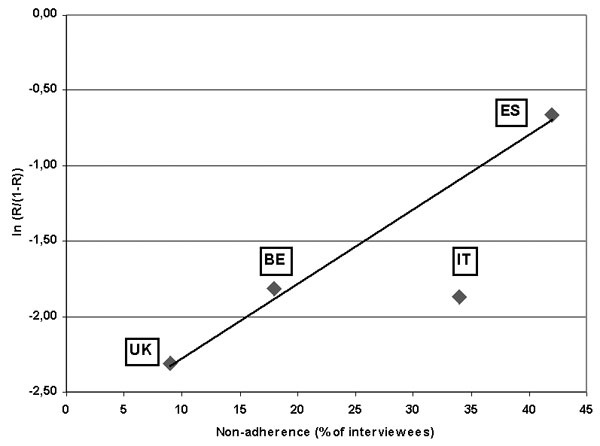Volume 8, Number 3—March 2002
Research
The Relationship between Antimicrobial Use and Antimicrobial Resistance in Europe
Figure 3

Figure 3. The logodds of resistance of invasive isolates of Streptococcus pneumoniae to penicillin (PNSP; ln(R/(1-R))) is regressed against nonadherence rates to antibiotic therapy in four European countries. Nonadherence rates are from 1993; PNSP data are from 1998-99. UK = United Kingdom; BE = Belgium; IT = Italy; ES = Spain.
Page created: July 15, 2010
Page updated: July 15, 2010
Page reviewed: July 15, 2010
The conclusions, findings, and opinions expressed by authors contributing to this journal do not necessarily reflect the official position of the U.S. Department of Health and Human Services, the Public Health Service, the Centers for Disease Control and Prevention, or the authors' affiliated institutions. Use of trade names is for identification only and does not imply endorsement by any of the groups named above.